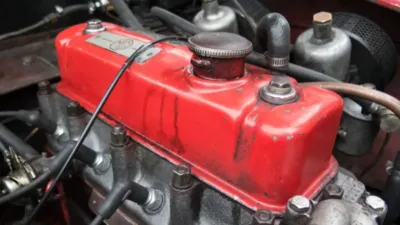February 14, 2023
Dealing with Engine Noise in Your Car
Engine noise can be a frustrating and sometimes alarming issue for car owners. Strange sounds coming from the engine can be a sign of a serious problem, or they may simply be an indication that it’s time for routine maintenance. Here are some common causes of engine noise and what you can do to address them.

-
Ticking or Clicking Sounds
Ticking or clicking sounds are often caused by low oil pressure or a worn valve train. This can be an indication that it’s time for an oil change, or that there’s a problem with the engine’s oil pump. In some cases, worn lifters or pushrods can also cause a ticking sound.
-
Grinding or Knocking Sounds
Grinding or knocking sounds can be a sign of serious engine problems, such as a worn crankshaft or connecting rods. If you hear these types of sounds, it’s important to have your car checked by a professional mechanic as soon as possible.
-
Whining or Humming Sounds
Whining or humming sounds can be caused by a variety of issues, including a damaged water pump, a worn alternator, or a problem with the power steering pump. These types of sounds may be more noticeable at certain speeds or when turning the steering wheel.
-
Squealing or Screeching Sounds
Squealing or screeching sounds are often caused by a loose or worn drive belt. This can be an indication that it’s time to replace the belt or adjust the tension.
-
Rattling or Banging Sounds
Rattling or banging sounds can be caused by loose or damaged parts in the engine, such as a loose timing chain or damaged pistons. These types of sounds may also be an indication that it’s time for routine maintenance, such as a tune-up or oil change.
What to Do About Engine Noise
If you’re experiencing engine noise, it’s important to have your car checked by a professional mechanic as soon as possible. Ignoring engine noise can lead to more serious problems down the road, and can even result in engine failure. A professional mechanic can diagnose the problem and recommend the best course of action.
In some cases, routine maintenance such as an oil change or tune-up may be all that’s needed to address engine noise. In other cases, more extensive repairs may be necessary. Whatever the cause of the engine noise, addressing it early can help prevent more serious problems down the road.
Conclusion
Engine noise can be a frustrating issue for car owners, but it’s important to address it as soon as possible to avoid more serious problems down the road. By being aware of the common causes of engine noise and having your car checked by a professional mechanic, you can help ensure that your car runs smoothly and safely.
What causes engine noise in cars?
Is engine noise always a sign of a serious problem?



